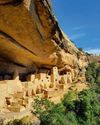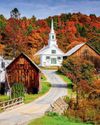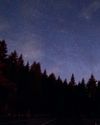The dark days of Chad’s Zakouma National Park saw its wildlife poached to near-extinction, but now it’s building a reputation as one of Africa’s best parks

Squatting on park manager Leon Lamprecht’s veranda, I’d never been so close to a wild elephant. The large bull’s breath was hot like the ambient Sahelian air; the wrinkled creases of his trunk engraved like a mighty oak. Without taking his eyes off me, he inverted his trunk to receive the clean, cold water I was hosing into it from an outside tap. When full, he would coil the trunk to his mouth and syphon the water down his throat, gurgling like a plug being pulled from a swimming pool, liquefied mud trickling down the runnels of his hide.
“He’s an old boy,” said Leon, in his baritone Afrikaans accent. “The stories he could tell about what he’s been through...”
Elephants drink from Leon’s tap every day, yet a decade before, they were being slaughtered here for their ivory. As civil war raged in northern Chad, troops guarding the eastern border with Sudan were diverted to capital N’Djamena. This opened the border to the Sudanese Janjaweed militia, who, fresh from committing atrocities in Western Darfur in the mid-2000s, now flooded across the border and plundered Zakouma. In the decade prior to 2010, 90% of Zakouma’s elephants had been slaughtered, dropping from around 4,000 to a little over 400.
“The survivors stopped breeding and any infants were trampled to death in stampedes as the poachers pursued them,” said Leon, who runs the 3,049 sq km Zakouma National Park. “They would’ve been annihilated had we not turned up,” he added, referring to the 2010 arrival of African Parks, a non-profit conservation organisation from South Africa who manage parks across the continent.
Diese Geschichte stammt aus der July/August 2019-Ausgabe von Wanderlust Travel Magazine.
Starten Sie Ihre 7-tägige kostenlose Testversion von Magzter GOLD, um auf Tausende kuratierte Premium-Storys sowie über 8.000 Zeitschriften und Zeitungen zuzugreifen.
Bereits Abonnent ? Anmelden
Diese Geschichte stammt aus der July/August 2019-Ausgabe von Wanderlust Travel Magazine.
Starten Sie Ihre 7-tägige kostenlose Testversion von Magzter GOLD, um auf Tausende kuratierte Premium-Storys sowie über 8.000 Zeitschriften und Zeitungen zuzugreifen.
Bereits Abonnent? Anmelden

Vermont, USA
The Wanderlust team relocated to New England for part of this issue, as we explored a lush state filled with outdoor escapes, historic towns... and lashings of maple syrup

Unique North America
See a side to the USA and Canada beyond the big cities and discover incredible stories and special wildlife with our pick of the trips

The call of the Rockies
From historic ski lodges to rustic backcountry cabins and a mock-Scottish castle, we pick the stays in Canada's Rocky Mountains that make the most of their setting

A new dawn for the Garifuna community
When the Garifuna people settled in Belize, they had to carry their traditions and culture with them; now a new trail is inviting visitors to explore this heritage through local communities

On the edge of history
In south-west Colorado lies the largest archaeological preserve in the USA, a series of vast cliff dwellings whose residents 'vanished' overnight. But was the answer to their disappearance in plain sight?

Tigers burning bright
As India celebrates 50 years of its Project Tiger conservation scheme, we visit the reserves of Madhya Pradesh to see how its success has impacted a tiger population that once looked in danger of disappearing

SEASON'S GREETINGS
From fiery fall foliage to art fairs and harvest festivals, opens up a wealth of across the USA and Canada autumn experiences

Waking a sleeping GIANT
A slow drive along the North Wales Way, from the English border to Anglesey, reveals not only a land of incredible local food and castles, but a region that is slowly reimagining itself

The rebirth of old JEDDAH
As efforts to restore Al-Balad, Jeddah's historical district, take hold, we get an exclusive peek at how art and culture are taking centre stage

Star-studded escapes
Wilderness, history and wildlife combine at some of Britain's most iconic stargazing sites, as more and more travellers are looking to the heavens